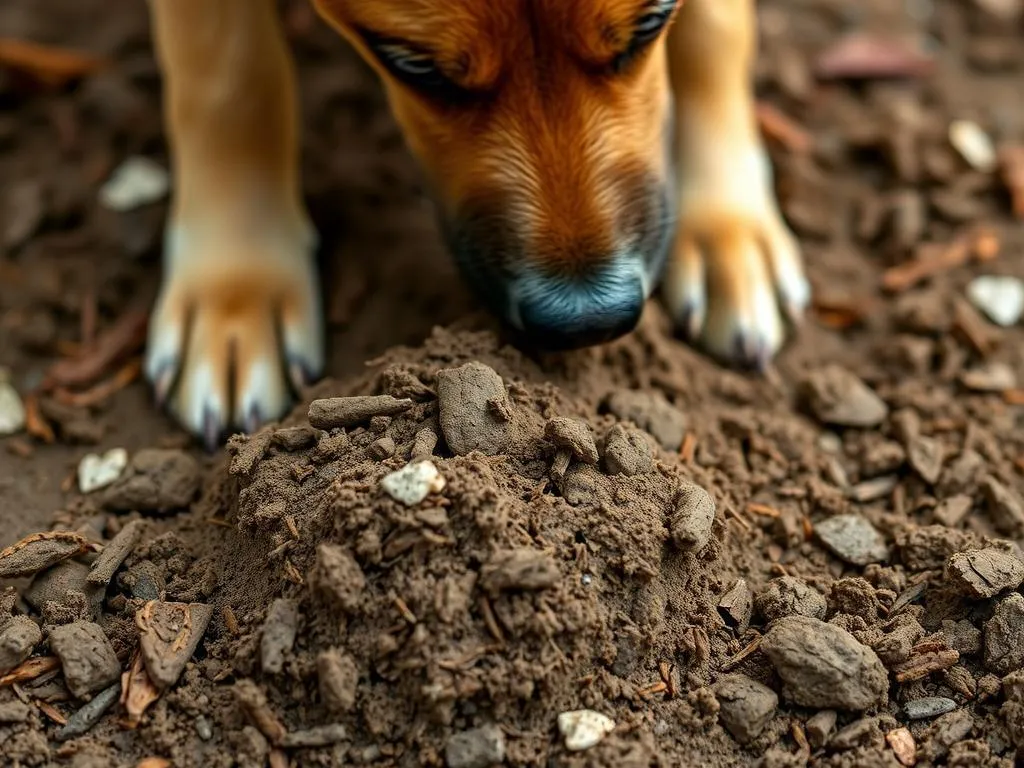
Introduction
Monitoring your dog’s health involves more than just regular vet visits and vaccinations. One of the simplest yet most telling indicators of your dog’s overall health is their poop. What does normal dog poop look like? This question is crucial for dog owners to understand because a dog’s stool can provide insights into their digestive health, diet, and potential underlying health issues. This article will explore what constitutes normal dog poop, the factors that affect its appearance, and how to maintain your dog’s digestive health.
Understanding Dog Digestion
How Dog Digestion Works
The canine digestive system is a complex process designed to break down food efficiently. It begins in the mouth, where food is chewed and mixed with saliva, and continues through the esophagus to the stomach. In the stomach, enzymes and acids further break down the food before it moves into the small intestine. Here, nutrients are absorbed into the bloodstream, while the remaining waste progresses to the large intestine, where water is absorbed and stool is formed.
Importance of a Balanced Diet
A balanced diet plays a pivotal role in digestion and, consequently, stool quality. Dogs require a mix of proteins, fats, carbohydrates, vitamins, and minerals. Common dietary components include:
- Proteins: Essential for growth and tissue repair.
- Fats: Provide energy and support healthy skin and coat.
- Carbohydrates: Source of energy and aids digestion.
- Fiber: Important for healthy bowel movements.
The right balance of these elements helps ensure that your dog produces normal, healthy poop.
What Does Normal Dog Poop Look Like?
Characteristics of Normal Dog Poop
Normal dog poop can vary somewhat depending on several factors, including diet, hydration, and overall health. Here are the key characteristics to look for:
-
Color: Healthy dog poop is typically a shade of brown. The specific hue can range from light to dark brown, depending on the dog’s diet. If the poop is black, red, or yellow, it may indicate health problems and should be investigated.
-
Consistency: Ideally, dog poop should be firm but not hard, resembling a log shape. It should hold its shape without being too dry or crumbly, which can indicate dehydration.
-
Size: The size of the poop can be influenced by the dog’s diet and size. Larger dogs usually produce larger stools, while smaller breeds will have smaller poops.
-
Shape: Healthy stool is shaped like a log or a firm sausage. Any variation, such as soft or watery stools, can be a sign of digestive issues.
Comparison with Abnormal Stool
To better understand what does normal dog poop look like, it’s essential to recognize the signs of abnormal stool:
-
Color Changes: Black or red poop may indicate bleeding, while a yellow or gray color could suggest liver issues or pancreatic problems.
-
Inconsistency: Watery or very soft stools can indicate diarrhea, while hard or dry poop might be a sign of constipation.
-
Strange Shapes: If the stool is elongated, flat, or has a very unusual shape, it could signal a blockage or other health concern.
Monitoring these characteristics can help you catch potential health issues early.
Common Causes of Abnormal Dog Poop
Dietary Issues
Diet plays a crucial role in your dog’s digestive health. Common dietary issues that can affect poop include:
-
Food Allergies and Intolerances: Some dogs may react negatively to certain ingredients, leading to diarrhea or abnormal stool.
-
Overeating or Sudden Diet Changes: A sudden shift in diet can upset a dog’s digestive system, resulting in irregular poop.
Health Problems
Several health issues can manifest through abnormal poop:
-
Gastrointestinal Diseases: Conditions such as inflammatory bowel disease or colitis can affect stool consistency and appearance.
-
Infections and Parasites: Bacterial infections, viral infections, or parasites like worms can lead to diarrhea or other stool abnormalities.
-
Side Effects of Medications: Some medications can disrupt digestion and alter the appearance of poop, leading to diarrhea or constipation.
Environmental Factors
Your dog’s environment can also impact their digestive health:
-
Stress: Changes in routine, new pets, or other stressors can trigger digestive upset and lead to abnormal stool.
-
Changes in Habitat: Moving to a new location or changes in the weather can affect a dog’s digestion and stool production.
Monitoring Your Dog’s Poop
Why Regular Monitoring is Important
Regularly observing your dog’s poop is essential for maintaining their health. The connection between stool health and overall well-being is significant. Changes in your dog’s poop can indicate potential health issues that may require veterinary attention.
How to Monitor Your Dog’s Poop
Here are some tips for effectively monitoring your dog’s poop:
-
Observe Characteristics: Take note of color, consistency, size, and shape each time you clean up after your dog.
-
Keep Records: Consider keeping a log of your observations, which can help you identify patterns over time.
-
When to Seek Veterinary Advice: If you notice persistent changes in your dog’s stool, such as diarrhea lasting more than a day, blood in the stool, or significant changes in eating or drinking habits, it’s time to consult your veterinarian.
Maintaining Good Digestive Health
Proper Nutrition for Dogs
To maintain your dog’s digestive health, focus on proper nutrition:
-
Recommended Diets: Look for high-quality dog foods that list meat as the primary ingredient. Avoid fillers and artificial additives.
-
Feeding Practices: Stick to a consistent feeding schedule and portion size, adjusting for your dog’s age and activity level.
-
Importance of Hydration: Ensure your dog has access to fresh water at all times, as hydration is crucial for healthy digestion and stool formation.
Regular Veterinary Check-ups
Routine veterinary visits play a vital role in maintaining your dog’s health:
-
Importance of Assessments: Regular check-ups allow for early detection of potential health issues related to digestion.
-
What to Expect: During a vet visit, your vet may perform a stool analysis or recommend dietary adjustments based on your dog’s health.
Home Remedies for Digestive Issues
Sometimes, digestive issues can be managed at home:
-
Safe Home Treatments: Consider simple remedies like pumpkin puree, plain yogurt, or boiled chicken and rice to soothe an upset stomach.
-
Probiotic Supplements: Probiotics can help maintain a healthy gut flora, which can improve digestion and stool quality.
FAQs about Dog Poop and Health
What should I do if my dog’s poop is abnormal?
If your dog’s poop is consistently abnormal, consult your veterinarian for a proper diagnosis and treatment.
Can stress affect my dog’s poop?
Yes, stress can significantly impact your dog’s digestion, leading to changes in stool consistency and frequency.
How can I improve my dog’s digestive health?
Focus on a balanced diet, regular hydration, and routine veterinary care to support your dog’s digestive health.
Conclusion
Understanding what does normal dog poop look like is vital for maintaining your dog’s health. By monitoring your dog’s stool and being aware of the characteristics of normal poop, you can catch potential health issues early and ensure your furry friend remains healthy and happy. Taking a proactive approach to your dog’s health will lead to better overall well-being for your beloved pet.









